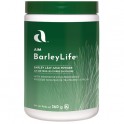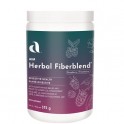Learn how nano glutathione can help you age gracefully by neutralizing harmful free radicals, supporting a robust...
Blog Search
Blog tags
Why detoxify?
There is no doubt that toxins are detrimental to our health and if we want to maintain good overall health and digestion we must eliminate them from the body.
Elson Haas, M.D., in his book Staying Healthy with Nutrition, defines a toxin as any substance that creates irritating and/or harmful effects in the body, and therefore undermines our health or creates stress in biochemical functions.
Specifically, excess toxins can produce symptoms such as constipation, bloating, poor digestion, flatulence, fatigue, weight gain, excess mucus, lack of concentration, headaches, skin problems, memory problems, depression, body odor and bad breath.
Some health professionals link toxins to specific diseases such as chronic fatigue syndrome, multiple chemical allergies, and fibromyalgia (muscle and joint pain). In fact, there is now a new discipline in medicine called clinical ecology, which deals exclusively with environmental toxins that can affect our health.
Detoxification
The body does not have a system for detoxifying harmful toxins. The most important organ for cleansing toxins is the liver. Other routes of elimination are the intestines (digestive system), kidneys, skin, lungs and lymphatic system.
When the body is functioning properly and is not overloaded with toxins, the blood is able to transport them to the liver, which breaks them down with enzymes, rendering them harmless or water-soluble for elimination through the urine or stool.
Unfortunately, this system has a limited capacity because it was designed for "natural" toxins, not the man-made toxins that surround us today. For example, protection against an age-old toxin -- alcohol -- is built into our genes. Thus, a gene in the liver produces an enzyme that converts alcohol into substances that the body can use or excrete.
However, our bodies don't know what to do with modern toxins. It doesn't know how to excrete them, and they can build up in the body to harmful levels or convert into unknown substances that can interfere with normal metabolism. According to the textbook Nutrition, Concepts and Controversies, this can lead to cancers or genetic defects.
Helping the body to detoxify
When our bodies are bombarded by unknown toxins, or generate too many toxins, or do not eliminate toxins effectively, toxins accumulate and can cause health problems. A detoxification program that supports natural elimination processes and prevents toxin buildup should be undertaken.
The key to detoxification is in our knowledge: understanding the connection between feeling better or worse and toxicity, understanding where the toxins come from, and understanding what you can do to take control of yourself.
Drinking water is an important aspect of detoxification. Water helps carry toxins and waste out of the body and transports nutrients to where they are needed. Try to drink eight to ten glasses of pure water each day.
Water can also be helpful externally: baths and saunas can help with detoxification. Hot water increases blood flow and capillary action near the surface of the skin, which releases toxins more quickly. In a sauna, the heat increases sweating and opens the pores of the skin. Be sure to bathe in pure water and remember that the hot water and detoxification effect can cause dizziness. There are also a number of substances you can add to your bath water to help with the detoxification process.
A healthy diet provides you with proper nutrition and also helps the cleansing process. Fresh, raw foods and whole grains give you the enzymes you need to easily digest your food. Avoid foods that contain additives or are devitalized. Avoid sugar, salt, saturated fat, caffeine, nicotine and alcohol. Decrease your meat intake as animal protein places a heavy burden on the digestive system. It is good to eat yogurt to maintain a good balance of intestinal bacteria.
Exercise stimulates body systems to increase metabolic efficiency. Of course, this includes systems involved in cleansing, such as the digestive system. Exercise also strengthens the body and mind.
The practice of stress management is important because stress affects us physically. It weakens the immune system and robs the body of important nutrients. Stress interferes with digestion and the cleansing process.
Plants, fiber and supplements are very important elements in a cleansing program. Many plants facilitate the cleansing process and provide an important supply of vitamins and minerals. Fiber "sweeps" the digestive tract and decreases the transit time for waste elimination. It absorbs toxins and escorts them out of the body. A probiotic supplement helps balance the good and bad bacteria in the digestive tract.
Fasting has been used for centuries to cleanse the body. However, fasting can be dangerous and should only be undertaken under the supervision of a health care professional.
The use of enemas and colonic irrigations can help remove toxins from the colon. Enemas can be self-administered, but irrigations should be done under the supervision of a health care professional.
In short, constant efforts should be made to prevent toxin build-up. This can be accomplished simply by drinking plenty of pure water and eating a plant-based diet, exercising and practicing stress management. Avoid environmental toxins as much as possible. Wear protective clothing or a mask when working with toxic materials at home or at work.
Detoxification programs
Many health professionals have developed detoxification programs. These programs usually combine the points developed above, which are integrated into a specific approach that includes the use of specific foods as well as herbal and fiber supplements.
Whether you follow a program or simply take the initiative on your own, you will find that your health may seem to deteriorate at first. You may find yourself with symptoms such as acne, fatigue, headaches, a sore tongue, cold extremities, digestive and bowel stress and even mood swings. These are positive signs of detoxification and mean that the process of cleansing the liver and other organs is underway.
Toxins in your body have been building up, sometimes for years! It will take more than a few days or even weeks to clear them out and start feeling better. Most people experience detoxification in cycles: first they feel worse than before, then they feel better. Then as the toxins are dislodged more thoroughly, the symptoms may reappear and then disappear again. With each cleansing cycle the sense of well-being becomes more evident and the periods of discomfort become shorter in duration. Eventually, a sense of well-being prevails.




















Leave a comment
Log in to post comments